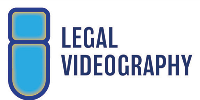Precision-Based Legal Videography for Professional Evidence Filming.
Precision-Based Legal Videography for Professional Evidence Filming.
Blog Article
The Duty of Legal Videography in Depositions and Trials
Lawful videography has actually arised as a crucial device in both depositions and tests, supplying a complex approach to documenting witness testaments. As lawful specialists increasingly recognize its worth, it motivates a deeper examination of how these visual documents can affect juror assumptions and test results.
Relevance of Lawful Videography
Lawful videography plays a pivotal function in the documentation and presentation of depositions and trials. This specialized field combines technical skills with lawful understanding to create a reliable record of proceedings that can significantly affect situation outcomes. The aesthetic facet of legal videography enhances the understanding of witness testament, permitting jurors and courts to observe not only the spoken words but likewise the temperament, feelings, and body language of the witnesses.

The significance of lawful videography prolongs beyond the court; it also plays a crucial duty in preserving evidence for future referral, whether for appeals or more lawful action. Because of this, its combination into the lawful process is important for making sure a fair and accurate representation of the truths, ultimately adding to the pursuit of justice.

Process of Legal Videography
While catching the nuances of depositions and tests, the procedure of lawful videography entails numerous critical actions that guarantee high-quality, accurate recordings. A professional lawful videographer prepares by evaluating the situation products and understanding the certain demands of the deposition or trial. This prep work consists of acquainting themselves with the participants and the context, which helps in recording relevant information.
On the day of the recording, the videographer sets up the needed devices, which usually includes high-def cameras, microphones, and correct illumination. Making certain ideal angles and sound quality is essential, as it directly affects the performance of the recording. The videographer communicates with lawyers and participants to develop procedures, ensuring that everybody understands the recording procedure.
During the deposition or trial, the videographer carefully tape-records the proceedings, paying very close attention to both spoken and non-verbal hints. legal videography. This consists of catching the behavior and reactions of witnesses and attorneys. After the session ends, the videographer might edit the video for clearness and conformity with legal requirements, producing a last item that precisely mirrors the proceedings for future referral and use in legal contexts
Advantages in Depositions
The unification of videography in depositions uses various benefits that improve the total procedure of Our site collecting proof. One key benefit is the capability to capture witness testaments with visual and auditory fidelity, giving an extra precise representation of the witness's attitude, tone, and body language. This multidimensional approach enables attorneys and juries to assess credibility better than traditional written records alone.
Furthermore, videographed depositions serve as an effective device for preserving testimony. Must a witness ended up being inaccessible for test, their videotaped deposition can be played in court, making certain that their proof remains easily accessible and appropriate. This facet considerably lowers the threat of shedding vital details that can impact case results.
In addition, the usage of legal videography advertises far better preparation for attorneys. Examining video footage allows lawful teams to evaluate and fine-tune their methods, determining strengths and weak points in their situations. This primary benefit can result in even more compelling presentations in court.
Last but not least, videography improves the overall expertise of the deposition process, instilling self-confidence in clients concerning the thoroughness of their legal representation. By leveraging technology, attorneys can significantly boost the performance of depositions.
Effect On Trials
In numerous trials, the assimilation of videography can substantially affect the presentation of evidence and the jury's perception. Legal videography catches witness statements and critical evidence in a dynamic layout, enabling jurors to engage with the product on multiple levels. This aesthetic element enhances the storytelling aspect of a trial, supplying context and emotional vibration that typical text-based proof may do not have.
Moreover, video recordings can offer as powerful devices for impeachment throughout cross-examination. When discrepancies arise in between a witness's prior declarations and their courtroom testament, video evidence offers an objective referral my blog that can sway jurors' opinions. This immediacy and clearness can strengthen the reputation of an event's story while at the same time undermining opposing arguments.
In addition, making use of videography can assist streamline complex information, making it a lot more easily accessible to jurors that might have a hard time to realize intricate information offered exclusively through spoken statement. By incorporating visuals with acoustic information, lawful videography can enhance retention and understanding, inevitably affecting the court's decision-making procedure. The effect of videography in tests expands beyond plain looks; it plays a More Bonuses vital function in shaping the lawful landscape and end results.
Future Trends in Legal Videography
As we look towards the future of lawful videography, several emerging trends assure to improve its role within the courtroom. One substantial fad is the integration of expert system (AI) in video analysis and editing - legal videography. AI can streamline the process of identifying vital minutes in taped depositions, permitting lawyers to quickly access pertinent content, thus enhancing effectiveness in instance preparation
In addition, the increase of online truth (VIRTUAL REALITY) and augmented truth (AR) innovations is anticipated to change how jurors experience evidence. By submersing jurors in a simulated environment, these modern technologies can provide an extra profound understanding of intricate situations, resulting in more educated considerations.

Furthermore, the raising demand for remote depositions, sped up by the COVID-19 pandemic, will likely continue. Lawful videographers will need to adjust to brand-new software program and systems to ensure high-quality recordings in virtual setups.
Finally, the expanding emphasis on information safety will necessitate more stringent methods for storing and sharing video clip evidence. As the lawful landscape advances, lawful videographers need to remain abreast of these fads to keep their relevance and performance in the judicial process.

Final Thought
In summary, lawful videography serves an important function in the judicial procedure, enhancing the stability of depositions and tests. As innovation continues to advance, lawful videography is poised to additional change its duty within the legal landscape.
Report this page